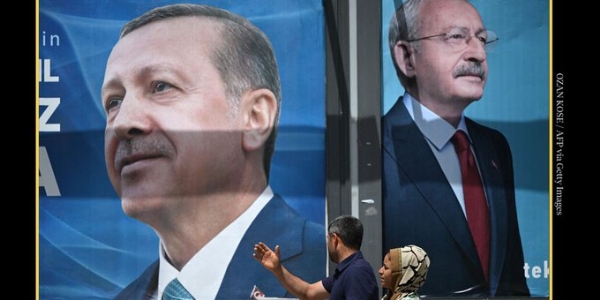Will Turkey go secular or remain Islamist? Elections results of tomorrow to determine
12 May 2023 15:26:48
Ankara, May 12: In the 100th year of its republic and the 20th year of its strongman Recep Tayyip Erdogan being in power, Turkey will go to polls this Sunday (May 14). Elections in this country, located in both Europe and Asia, are being watched across the world because who governs Turkey has wider geopolitical ramifications, and because Erdogan for the first time looks vincible.

Opinion polls have given the Opposition camp a slight lead over the President. Yet, Erdogan the seasoned campaigner, with the might of the state’s resources and the media behind him, cannot be written off. Turkey’s roughly 60 million voters will vote to elect both their President as well as members of Parliament.
The President is elected in direct voting and the candidate to cross the 50%-mark will win. If no candidate reaches that figure, there will be a runoff election on the second Sunday after the first vote. In the runoff, only the top two candidates of the first ballot will contest, and the one with more votes will become President. Election to the 600-member Parliament, or Grand National Assembly, is through proportional representation, where people vote for parties rather than individual candidates. The seats a party gets are proportional to the votes cast in its favor. To enter Parliament, a party needs to win 7% of the vote or be a constituent of an alliance that does. Thanks to sweeping changes introduced by Erdogan in his last term, Turkey now is a Presidential rather than Parliamentary democracy, and the post of Prime Minister has been abolished. Turkey matters to the world, thanks both to its location and its status as a significant economic and military power. Turkey shares a border with Syria and Iran, is separated from Russia and Ukraine by the Black Sea, and is surrounded by the Mediterranean Sea and the Aegean Sea. It controls the Bosphorus Strait, which is the only passage for Russia and Ukraine, among other countries, to access the Mediterranean Sea and thus most of the world by water. For India, it is an important trading partner. Turkey has territories in both Asia and Europe, making it unique. It is a NATO member with a standing Army second only to America’s, but Erdogan is pally with Russian President Vladimir Putin. For the West, Turkey is a bulwark between itself and the chaos in the Middle East — absorbing refugees and serving as a military base when needed — as well as an ally on account of being a stable democracy in an unstable region.
Under Erdogan, democracy is sliding and ties with the US and the European Union are fraying. However, he still remains a key partner, with the Russia-Ukraine war and his access to Putin bolstering his clout. If Erdogan survives this scare and comes back to power, he is likely to double down on his authoritarianism, widening the differences with the West. In Asia, Turkey is likely to vie for greater leadership of the Muslim world, further destabilizing the restive region.
